20+ SAMPLE Event Planning Proposal
-
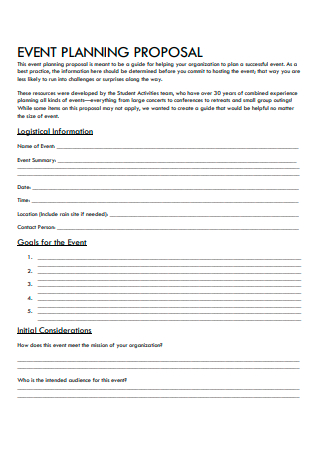
Event Planning Proposal Template
download now -
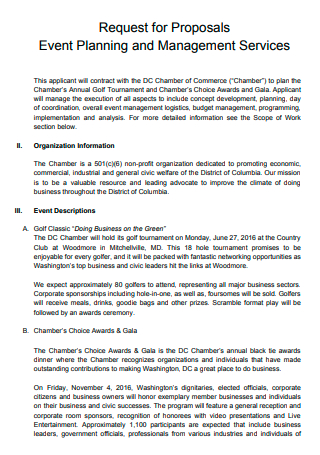
Event Planning and Management Services Proposal
download now -
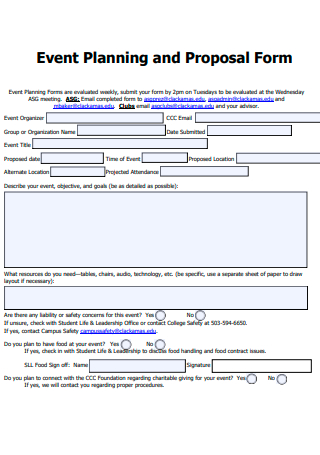
Event Planning and Proposal Form
download now -
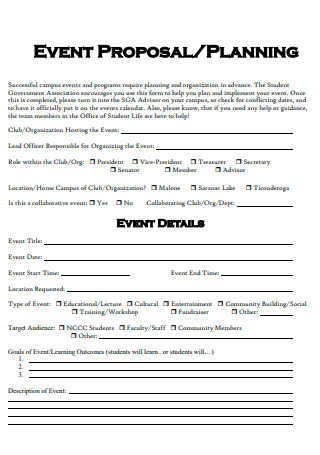
Basic Event Planning Proposal
download now -
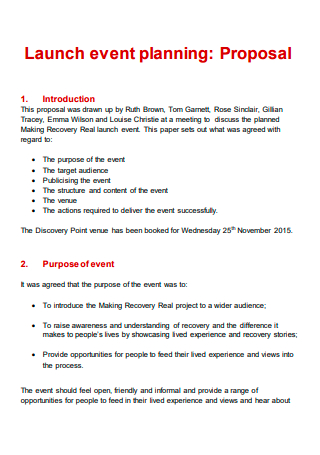
Launch Event Planning Proposal
download now -
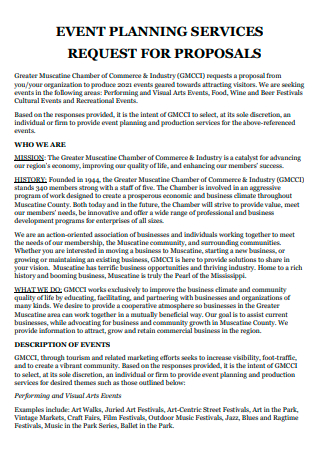
Event Planning Services Proposal
download now -
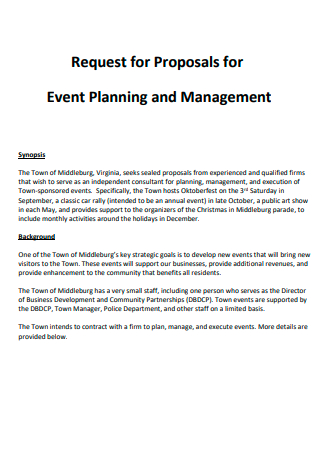
Event Planning and Management Proposal
download now -
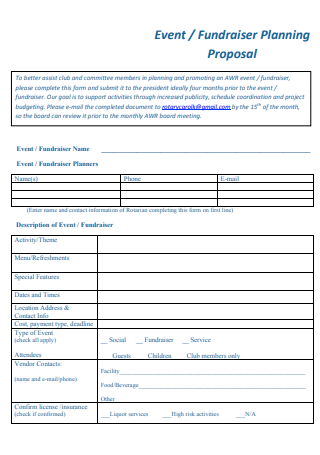
Event Fundraiser Planning Proposal
download now -
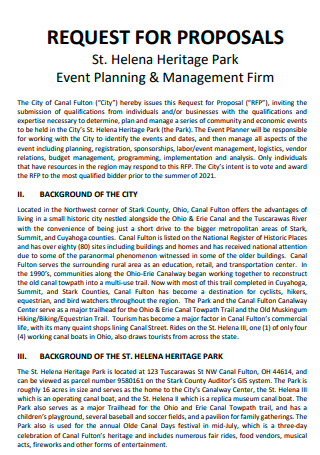
Event Planning and Management Firm Proposal
download now -
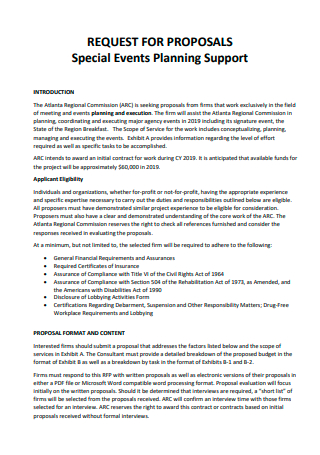
Special Events Planning Support Proposal
download now -
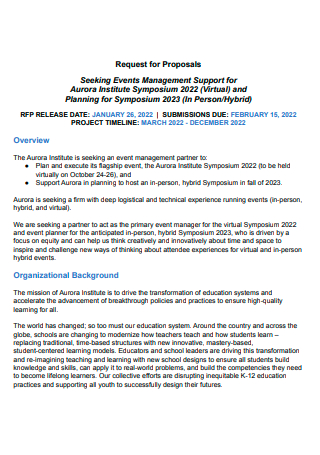
Event Planning Proposal in PDF
download now -
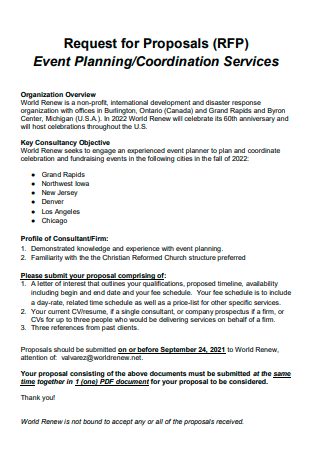
Event Planning Coordination Services Proposal
download now -
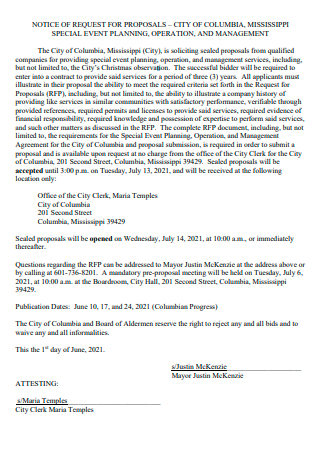
Special Event Planning Notice of Proposal
download now -
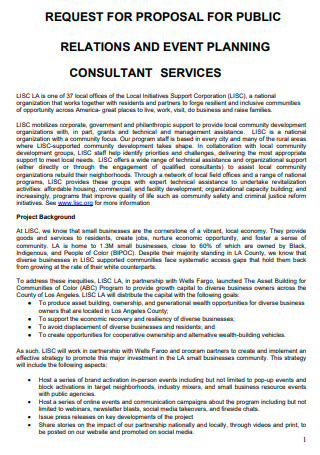
Event Planning Consultant Services Proposal
download now -
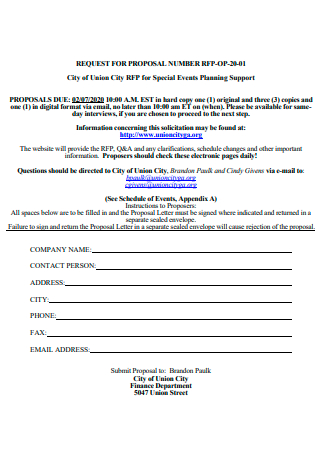
Unique Event Planning Support Proposal
download now -
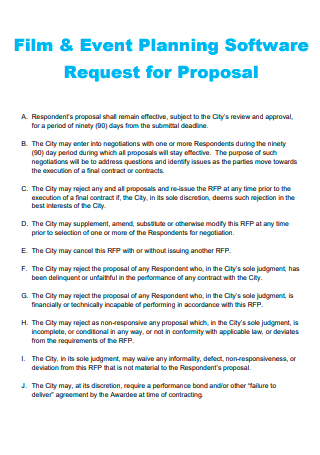
Film and Event Planning Software Proposal
download now -
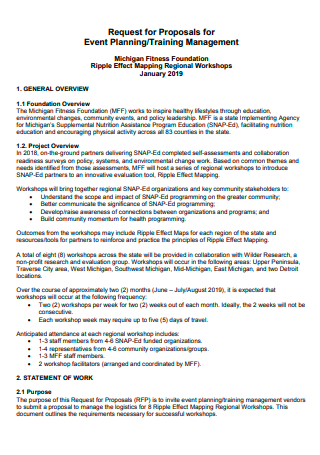
Event Planning Training Management Proposal
download now -
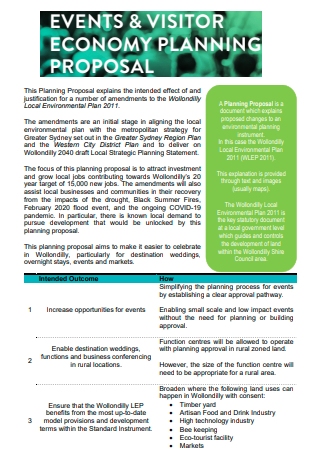
Event and Visitor Economy Planning Proposal
download now -
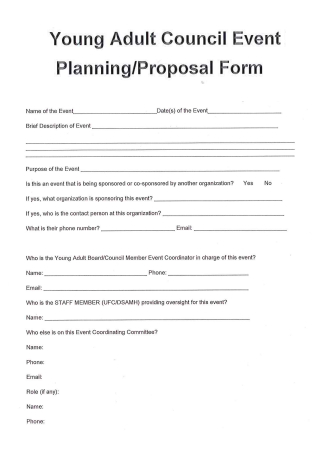
Young Adult Council Event Planning Proposal
download now -
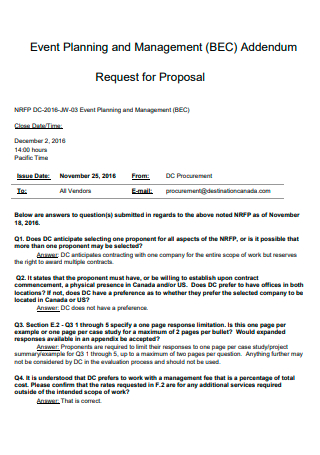
Event Planning and Management Addendum Proposal
download now -
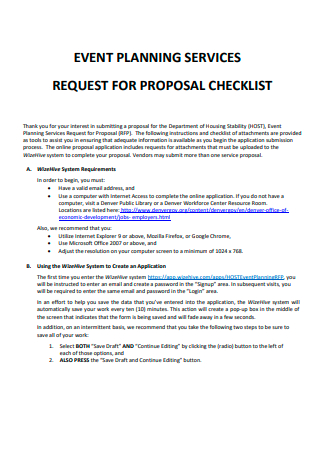
Event Planning Services Proposal Checklist
download now
FREE Event Planning Proposal s to Download
20+ SAMPLE Event Planning Proposal
an Event Planning Proposal?
Benefits of Event Planning
Elements of Event Planning
How To Write a Proposal for Event Planning
FAQs
What is the value of event planning?
What factors contribute to the success of an event?
Is Event Planning an Exhausting Process?
What Is an Event Planning Proposal?
An event planning proposal is a detailed document that details the services you will give for an event. It’s a combination of your company brochure, marketing campaign, and sales pitch. This proposal for an event should establish you as an accomplished, skilled professional who is uniquely prepared to conduct this event. It should set you apart from other event planners and identify you as a trustworthy professional. A well-written event planning proposal should include specifications about which services are included and explain how you will execute the event, including all required elements so the client can readily imagine what you are proposing. 80% of event marketers report that their affairs are more purposeful than two to five years ago.
Benefits of Event Planning
Planning events using an integrated platform may provide a slew of benefits to your organization, whether you’re aiming to cut expenses, save time, or streamline the process. Continue reading to see how a unified events platform may revolutionize your event strategy.
Elements of Event Planning
Any event needs a plan and a process to help your group reach its goal. Hosting an event is a lot of work, and it’s even more challenging to meet your goals with the event than that. If you follow these seven things when planning your event, it will go well.
1. Recognize the Event’s purpose:
Each event should have a fundamental purpose, goals, and objectives that serve as the yardstick for success. Understanding the event’s aim enables more effective planning and time and financial allocation. You must first establish a reasonable objective, most notably a realistic attendance target, to achieve success.
2. Recognize Your Audience
It will help if you determine your target audience and their needs based on your organization’s goals. Once you’ve decided on your target audience, figure out where to find them and how you’ll communicate with them. There are numerous methods for reaching out to your prospects and generating new audiences and possible clients. Email marketing, telemarketing, social networking, and search engine organic are options, though some will be more useful than others, relying on your target audience. Knowing everything you can about your target audience will also help you figure out what kind of events you’ll need to put on.
3. Selection of an Appropriate Location and Timing
Choosing the right venue for your event depends on the type of event and the target demographic. There should be a link between the organization’s expectations for the event, chosen venue, and the target audience. We’ve published an entire post about online meetings for people who want to attend events from different parts of the world. In addition, much like the right site, the right timing is essential for a successful event. When determining the best timing, many elements must be considered, including the days of the week, months of the year, holidays or other events on the calendar, type of event, location, and many other local characteristics.
4. Create a plan and adhere to the timeline
Now that you’ve established a precise aim and identified your target audience, it’s time to devise a strategy to carry out the activities and achieve the goal. Start preparing early enough to grasp every part of the event, its requirements, and necessary actions relying on the size and complexity of the event. Before you start, make a list of the main milestones and deadlines. Creating an event planning strategy isn’t enough; you also need to stick to the schedule and keep track of what you’re doing.
5. Create a message for the event
Creating material and having your audience consume it, on the other hand, is a boon to your event’s goal. It allows you to design the message so that guests may agree with or accept. You don’t host events to make people happy; they should serve a purpose: to deliver information that helps audiences understand the organization and its contribution and influence. Attendees are more likely to trust the organization as a result of this.
6. Mechanism for capturing leads
The significant purpose of B2B events likely is to collect leads from potential customers. It will be easier to generate leads if you take care of all of the above, but you must prepare how to capture your information. Consider any innovative ways or mechanisms that you believe will be most effective for your events.
How To Write a Proposal for Event Planning
Your event proposal should be a representation of your customer first and foremost. Because preparing an event entails tailoring it to your client’s specific demands and budget, your proposal should reflect a personal and unique event. You can utilize a template as a starting point for developing your event proposal, but you should customize it to highlight the exceptional services supplied to each customer. Each proposal should be used to meet the specific needs of the client. Event planning is a service industry, and the service, personal touch, and creative approach contribute to an event’s success and memorability, two attributes that contribute significantly to your firm’s growth. Proposals should be well-written and extensively researched, including sufficient specifics to enable the customer to visualize what you’re proposing. If you’re still interested in creating one, follow some steps.
1. Introduce yourself and your endeavor.
Begin by providing a quick overview of yourself and your event planning firm. Include details about your business, such as the length of time you’ve been in operation and your professional background. Some planners include this part at the conclusion, similar to how an author’s biography appears on the dust jacket or back cover.
2. Create a visually appealing event description.
Summarize the actual event, including the specifics discussed during your meetings, such as the event’s purpose, essential timeframe, guest count, and potential venues. If you are not a skilled writer, discover or employ someone who is to enhance the appeal of this part.
3. Include a list of all services supplied.
This section is critical. The client must understand what services you intend to supply for this event. A bullet-pointed checklist outlines the various services that are offered. This strategy works great for smaller occasions such as bridal showers or celebratory dinners because it lets the client see what you will accomplish and which providers you will hire. For significant events with several functions, such as a cocktail hour or luncheon, you may want to divide the event into portions and then describe the same services.
4. Demonstrate past work.
Suppose you’ve arranged similar events in the past, including photographs of them to demonstrate your abilities. Visual representations can assist the client in visualizing what you are capable of and reassure you that your style suits their vision. Having benchmarks to work against can significantly aid in streamlining the event once it is time to break ground.
5. Integrate financial data throughout
While the customer may be reading your proposal and absorbing all of the details and images of the event you imagine, this thinking typically switches when it gets to the part on payment. You don’t want the process to come to a halt. Therefore avoid abrupt shifts in vocabulary or tone when discussing business or facts. Create a section titled “Proposed Costs” and walk the client through the many parts of this event by carefully defining the costs and peppering the proposal with figures. Assist your client in visualizing your proposal as a succession of steps, each with a distinct set of services and associated pricing. Provide a detailed summary that details the price and function of each item so that the client can see the event and its associated expense.
FAQs
What is the value of event planning?
Planning involves all facets of the event, from conceptualization and idea generation to the night’s schedule. Everybody wants their events to run smoothly, and hiring an event management company may alleviate stress and allow organizers to enjoy their evening.
What factors contribute to the success of an event?
A successful event is visually appealing and well-organized. Begin with a subject or concept and work your way up. Additionally, a logical arrangement and flow are critical. You may like to include signage related to the event’s subject and inform guests of their location.
Is Event Planning an Exhausting Process?
Event planning is one of the world’s top five most stressful jobs, ranking alongside rushing into burning buildings and attempting to land an eighty-ton airplane successfully.
The final section of your proposal is a thank-you for their time. Provide contact information for prospective clients—including your website, email address, and phone number—so they may contact you with queries or, even better, hire you for the work. Utilize this proposal sample when proposing a fundraising event for a specific cause. With this sample in hand, you can create a dependable and persuasive proposal that will undoubtedly result in your event’s authorized plan. Check it out now!
